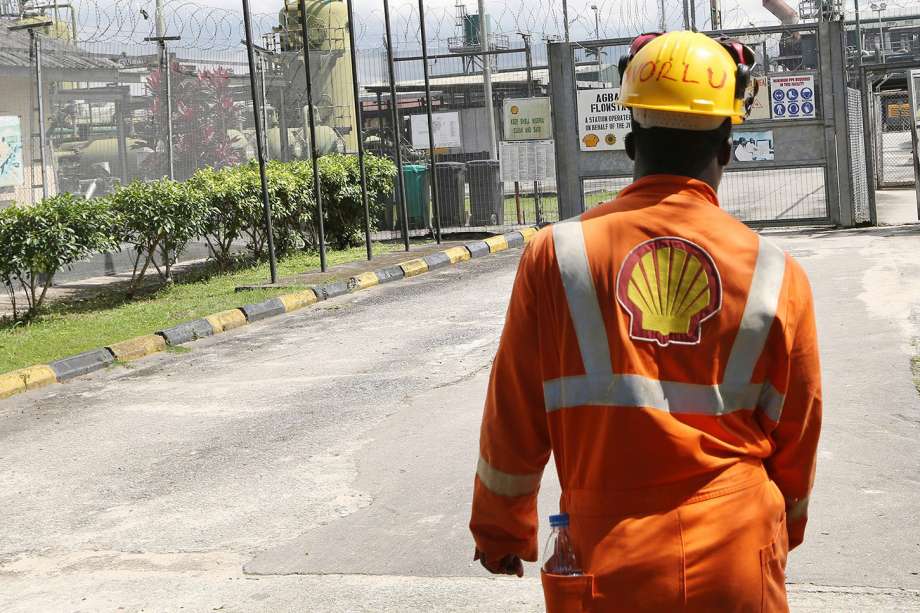A key witness failed to corroborate corruption allegations at the heart of the trial of Eni SpA and Royal Dutch Shell Plc over a Nigerian oil deal, potentially bolstering the companies’ defense in one of the industry’s biggest graft cases.

Testimony from Isaac Eke, a high-ranking retired Nigerian police officer, at a court in Milan offered no evidence to back up claims from former Eni manager Vincenzo Armanna that the proceeds from the 2011 transaction were distributed as cash bribes. The failure of what could have been a key prosecution witness helps Shell and Eni, whose Chief Executive Officer Claudio Descalzi is among the accused.
Both companies, and the current and former executives that are also defendants, have consistently denied any wrongdoing. Shell reiterated that position on Wednesday and had no further comment. Eni wasn’t immediately able to respond to a request for comment.
At the center of the case is the $1.1 billion payment Shell and Eni made to the Nigerian government for Oil Prospecting License 245 in the Gulf of Guinea. Prosecutors allege that most of this money was subsequently redistributed as bribes to company and government officials in the West African country.
Armanna, who is also a defendant in the trial, has alleged that a bodyguard working at then-President Goodluck Jonathan’s villa, said to be Eke, showed him pictures of trolleys full of cash being taken to a private jet. Eke told the court he had never set foot in the residence and didn’t meet Armanna until three years after the alleged events took place.
At one point, the judge interrupted cross-examination to prevent the witness potentially incriminating himself for making false statements to the court. The testimony effectively reversed statements in a document signed by Eke previously submitted to the court.
The originally submitted letter said Eke was introduced to Armanna at a dinner in 2009 and was told he was the main point of contact for Agip Nigeria, Eni’s unit in the country. The letter says Eke is willing to testify, but that “there will be no press coverage and identity must be protected.” In the court room, Eke said that while he had signed the letter, it was written by a friend.
Eke also testified that a mutual friend told him Armanna would pay for his trip to Milan and the accommodation, but eventually he covered the expenses from his own funds. The former police officer said he came to the trial unaware that it was a criminal proceeding. The judge denied a request from Armanna’s lawyer to cross-examine Eke directly.
Twists and turns
This is the second time prosecutors have failed to corroborate Armanna’s allegations. A witness called in December, who was said to be the presidential bodyguard, turned out to be the wrong person. Eke was one of the prosecution’s last two witnesses, and the trial in Milan will now go into its final phase with concluding arguments from both sides before a verdict in the coming months.
The Italian legal system is notoriously slow, with lengthy deliberations and repeated opportunities for appeals after the initial verdict. It is not infrequent for the statute of limitations to kick in before a final conviction has been reached.
The case has had many twists and turns. In September 2018, two middlemen were found guilty of corruption in a separate fast-track trial related to OPL 245. Emeka Obi and Gianluca Di Nardo were found to have helped arrange a payment between the companies and the Nigerian government for the license.
In March 2019, a retired Swiss oil executive withdrew accusations against Shell and Eni executives, saying earlier statements that they were part of a network of bribes and kickbacks had been made under pressure.
While the criminal trial in Milan is in its final months, the dispute has spread to courtrooms across Europe. In a London lawsuit, the Nigerian government is seeking more than $1 billion in damages and the rights to revoke the license from Shell and Eni. In the Netherlands, where Shell is headquartered, the company has said it is facing prosecution from the public prosecutor’s office.




